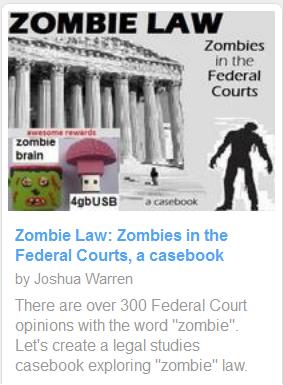Deconstructing Zombie Business
The Telegraph: “Zombies? They are a myth” Max Firth, managing director of Experian Business Information Services:

In our view, not only is the zombie argument plain wrong, it is also extremely damaging to the UK economy. The current scaremongering risks frightening lenders and stalling the supply of trade credit…
and
…to properly deconstruct zombie theory, it is first necessary to ask why people think zombies exist at all.
…
Zombie theorists suggest the 2008 financial crisis didn’t “clear out” enough non-viable businesses
But if we “dig deeper” and account for “micro-businesses” and “hidden insolvencies”, Firth argues:
…contrary to the opinion of some commentators, there really was a massive clear-out of failing companies during the financial crisis with far fewer “hangers on” than some data suggest.
and
[Experian’s] data shows that survivors of the recession are now more robust than ever and we are witnessing more businesses being formed at the moment than are closing.
Concluding:
As the recovery continues, an important part of oiling the wheels of the UK economy will be freeing up this resource. Inaccurate rhetoric about zombie companies risks scaring off suppliers of trade credit because, with one in 10 supposedly in dire straits and with no long-term future, it makes little sense to offer commercial terms at all. The longer the zombie myth continues, the greater the risk that the supply of trade credit to the very businesses that will help drive the recovery is restricted. That to me is the real horror show.
This article is a direct response to research recently published by The Adam Smith Institute: “The Trading Dead” by Tom Papworth [55 page pdf] which provides the following definition for what is a “zombie business”:
a. The company is heavily indebted
b. The company is able to generate enough revenue to pay the interest on
its loan but is not able to pay down the principle
c. The ability to meet loan interest payments is dependent upon continuing
low interest payments
d. The above prevents the company from restructuring and so becoming
more profitable
e. The above vitiates the need for the company to go into receivership, thus
preventing the redeployment of capital and labour to more productive sectors.








Trackbacks & Pingbacks